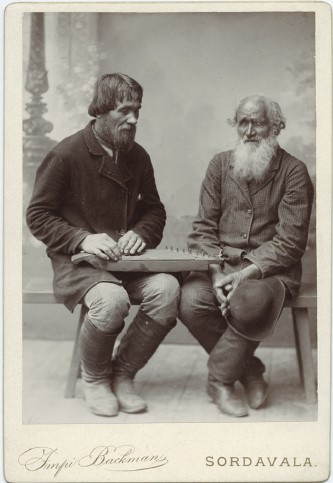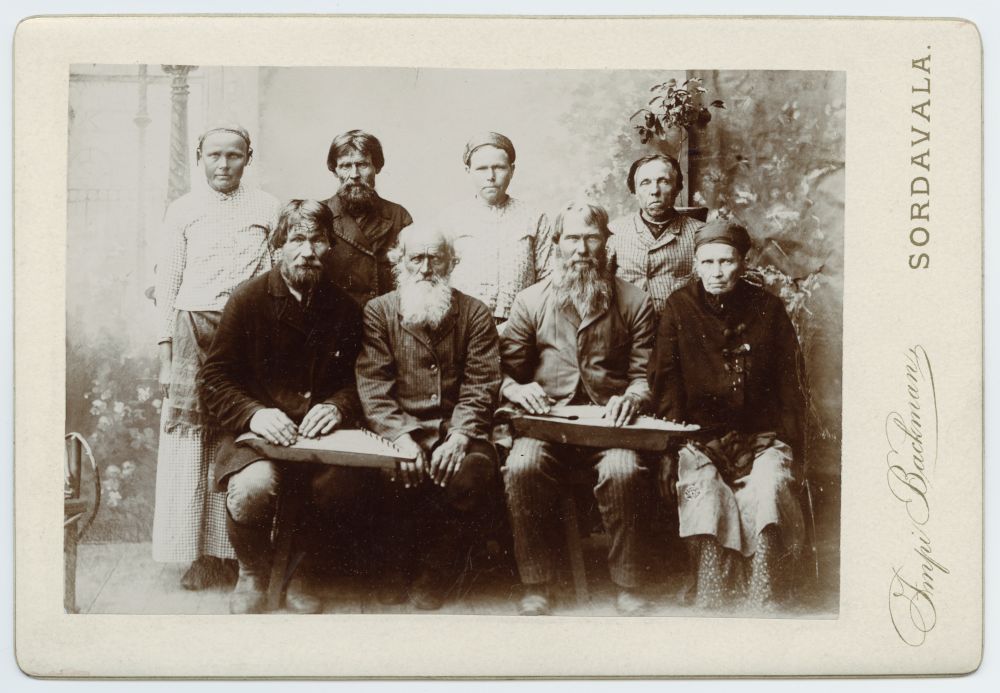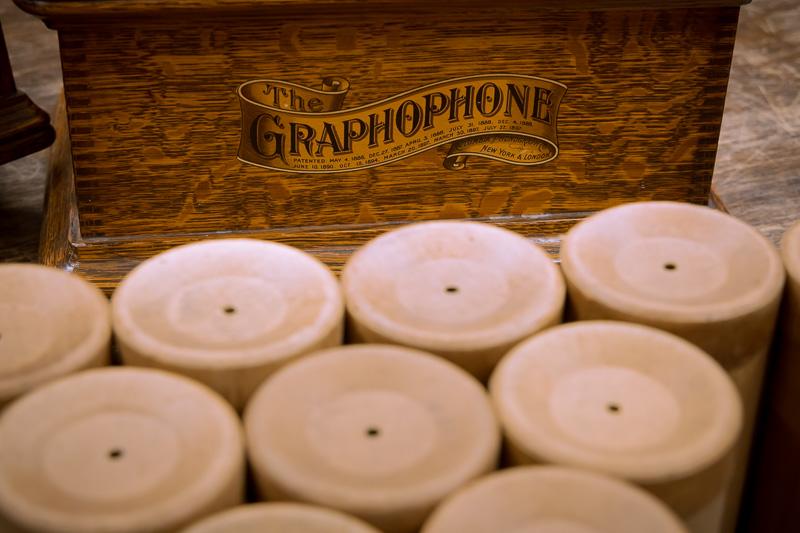Armas Launis (1884–1959)
Armas Launis (1884–1959) composer, researcher of folk music and journalist
Armas Launis is a composer known especially for his operas, who during his studies focused on the research and collection of folk music.
Since 1902, Launis has made several folklore collecting travels to the Sámi regions, Border Karelia and Ingria. He had a phonograph with him on his trips to Border Karelia and Ingria in 1906.
In Border Karelia, Launis encountered famous rune singers. In his travelogue, Launis had the following to say about his encounter with them:
Last spring, I received a travel allowance of 150 mk (Finnish markka) from the Finnish Literature Society to go to Karelia and use the society’s phonograph to collect the rune melodies from famous rune singers there. The aim was to record their performance style in a more dynamic fashion. At the time, I turned to Dr. Forström, who was an expert on Border Karelia, to learn whom I should visit. He advised me to visit at least Iivana Härkönen, Iivana and Petri Shemeika as well as Okuliina Kuokkanen, who was skilled in laments. If I encountered any other singers, all the better.
All of the above-mentioned singers, except Petri Shemeikka, resided in the Suistamo parish. According to the sources, Iivana Härönen’s house was closest to Sortavala. I arrived there at the beginning of June. I visited the old man, who was lying on his deathbed, but was still able to sing. I found other singers in the same region. Iivana’s son, who shared his father’s name, was able to sing two notes and his daughter Okuliina had a good voice for performing laments. A man named Iivana Onoila came from the nearby Sara village to sing a few poems to the phonograph.
Then, I arrived by horse to the village of Jalovaara, from where I had to continue by foot to the heartlands where Iivana Shemeikka and Okuliina Kuokkanen lived. Carrying the phonograph on my back while travelling was relatively easy. Okuliina Kuokkanen recited a poem and laments for me and Iivana sung his rune melodies in Muuanno. In the latter village, I also encountered less skilled rune singer wives, who both got to hear their voices from the machine.
Petri Shemeikka was still left. I found him in the wilderness of Ilomantsi, in Ristivaara, where I got on horseback. The old man had lost his sight due to age. Even his voice was weak. It was unlikely to leave a mark on the phonograph cylinders.
Armas Launis. A narrative on the rune song collection trip in Karelia in summer 1905. Suomi IV:4. Suomalaisen Kirjallisuuden Seura 1906.
Petri Shemeikka and Okuliina Kuokkanen in Ilomantsi and Suitamo, 1906
Petri Shemeikka: Lappalainen laiha poiga (Skinny boy from Lapland, Southern Karelian dialect). Ilomantsi, 1905. SKS KRA FON Launis, Armas 12:1905.
The license for the sound recording is CC BY-NC-ND 4.0 You
can share this work with others as long as you cite the author. The
work may not be modified in any way, nor may it be used for commercial
purposes.

Okuliina Kuokkanen: Laments (Southern Karelian dialect). Suistamo, Border Karelia, 1905. SKS KRA FON Launis, Armas 1905:6.
The license for the sound recording is CC BY-NC-ND 4.0 You can share this work with others as long as you cite the author. The work may not be modified in any way, nor may it be used for commercial purposes.

Nadja Kortteintytär in Soikkola, Ingria, 1906
In 1906 in Ingria, Launis was once again on the move with his phonograph. In Soikkola, he recorded Nadja Kortteinen and other singers. The recording of the alternation of the leading singer and the choir was a significant achievement for the study of the presentation of the poem.
On more than one occasion, I had to rely on the help of a choir or at least one choir member, as the rune song sounded oddly fragmentary coming from the phonograph, since there are no pauses in continuous rune songs. The choir was typically formed of three or four singers, and as you can hear from the phonograph samples, these choir vocals usually include two or even three tones.
Armas Launis 1907. Kertomus sävelkeruumatkasta Inkerissä kesällä 1906. Suomi IV:5. Helsinki 1907
Nadja Kortteintytär: Velloini venoisen seppoi (Ingrian language). SKS KRA FON Launis Armas 1906:16.
The license for the sound recording is CC BY-NC-ND 4.0 You can share this work with others as long as you cite the author. The work may not be modified in any way, nor may it be used for commercial purposes.

